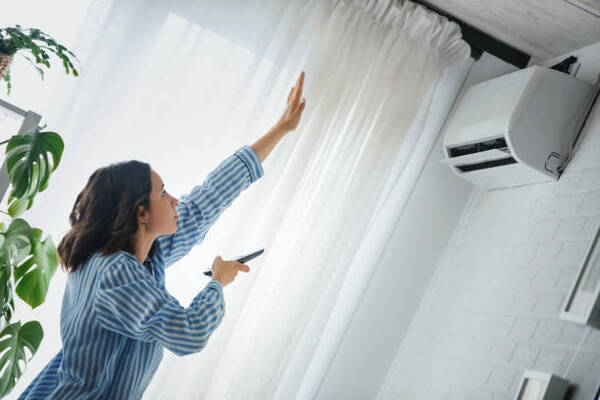- 1-905-452-8193
- Contact Us
- Member Login
- Get Listed Today
- 220,911 members

Are you having difficulty with air conditioning Central Coast flow in your home or business? If so, you may be wondering what is causing the problem. Poor airflow can be caused by a variety of factors, and it’s important to identify the source and take corrective measures as soon as possible.
The following list details the common causes of poor air conditioner flow.
Dirty Air Filters
This is one of the most common causes of poor air conditioner flow. Air filters should be checked and changed every three months or according to the manufacturer's recommendations for optimal efficiency.
Improper Sizing
When an air conditioning unit is not properly sized for the space it is serving, it can result in poor airflow. Calculate the BTU for the space you are cooling and make sure your unit is correctly sized to ensure optimal efficiency.
Incorrect Thermostat Settings
If your thermostat settings are incorrect, it will affect air conditioning performance and cause poor airflow. Make sure that the temperature setting is accurate so that your system runs efficiently and your home stays comfortable.
Excess Dust Buildup
Dust buildup in a cooling unit can reduce airflow due to the restriction of the free movement of air through the system’s coils and ducts. Have a professional come in annually to clean and check all parts of your air conditioning system for dust accumulation, debris blockages or other problems that can reduce airflow.
Refrigerant Leaks
If your air conditioner is leaking refrigerant, it will cause poor air flow and decreased cooling. Have a professional inspect your unit to determine if the leak is coming from faulty seals or loose connections and have the repair made immediately.
Clogged Ducts
When ducts become clogged with dust, lint or other debris, it restricts their ability to pass air throughout your home efficiently resulting in poor airflow. Have a duct cleaning performed every couple of years to ensure proper airflow and optimal energy efficiency.
Faulty Blower Motors
The blower motor controls the speed of the fan which circulates air through the system. If it is faulty or malfunctioning, it can cause a decrease in airflow and poor cooling. Have a professional inspect your unit to determine if the blower motor needs to be replaced.
Faulty Wiring
Faulty wiring in an air conditioning unit can cause decreased airflow and ultimately reduce the performance of the entire system. Have a professional come in and check all electrical connections associated with your unit to ensure they are properly wired and secure.
Obstructions
Any obstacles near a cooling unit that could restrict airflow such as furniture, curtains or plants should be moved away from the area immediately for optimal efficiency and proper cooling.
Faulty Controls
If any of the controls in the air conditioning unit become faulty or malfunction, it can have a direct impact on airflow and cooling performance. Have a professional come in to inspect all of the controls for proper operation and make any necessary repairs.
Blocked Vents
If you notice that some rooms in your home are not cooling as efficiently as others, it may be because vents are blocked preventing air from entering those areas. Make sure all of your vents are open and unblocked so air can flow freely throughout your home.
Incorrect Installation
Poorly installed cooling units can lead to improper airflow which will decrease efficiency and cause poor cooling performance. Always use an experienced professional to install your air conditioning unit properly for optimal results.
By following these simple steps, you can ensure that your air conditioner is running at peak efficiency and that your airflow is optimal. If any of the above problems are present in your cooling unit, it’s important to contact a professional right away to prevent further damage or costly repairs. Taking care of your air conditioning unit regularly will help to extend its lifespan and keep you comfortable and cool throughout the summer months.
